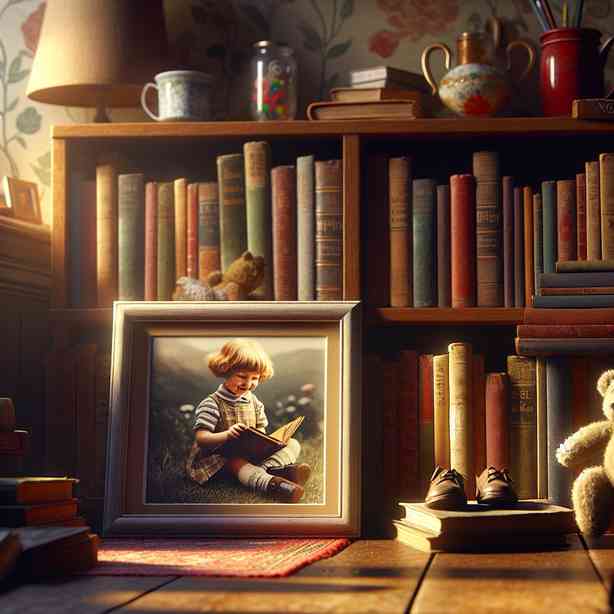
Growing up often means leaving behind certain things that once held a special place in our hearts. This process of outgrowing activities, interests, or even friendships is a natural part of life, yet it can evoke feelings of nostalgia and loss. For many, there are specific series—be they TV shows, books, or games—that played a significant role during our formative years. As we evolve and mature, some of these series may no longer resonate with us in the same way; however, the memories and the joy they once brought can still linger.
When thinking of the series you have outgrown, consider the unique way these narratives shaped your understanding of the world. Each of us has a particular series that stood as a pillar during our childhood or adolescence. Perhaps it was a beloved animated show filled with colorful characters and whimsical adventures that sparked your imagination. These series, often characterized by their simplistic storylines, provided a comforting reassurance and escapism from reality. Though you may have aged beyond what they offered, the sheer joy and laughter they brought remain etched in your memory.
The characters you grew attached to played pivotal roles in your personal development. They sparked your empathy, inspired resilience, or introduced important life lessons—often without us realizing it at that time. Whether it was the hero’s journey, exploring friendship, or battling a villain, these archetypes reflected the very struggles of growing up. While you may no longer indulge in binge-watching those episodes, the emotions tied to those stories remain relevant, influencing how you navigate adult relationships or confront challenges.
Nostalgia hits especially hard when you encounter references to these series in popular culture. Those light-hearted jokes or subtle nods can transport you back in time, summoning vivid memories of sitting in front of the screen or flipping through the pages of a cherished book. It’s as if these moments were stored away, waiting for the right cue to resurface. Such feelings prompt a meaningful reflection on personal growth—understanding that although you have moved past them, they will always be part of your journey.
Additionally, the impact of these series extends beyond personal nostalgia. They shape collective cultural memories, fostering communities and conversations across generations. Fan clubs, online forums, and social media groups exist where individuals share their opinions, theories, and love for these shows. Engaging with like-minded fans can reignite a spark of the joy you previously experienced, as you discuss plot twists or favorite characters with enthusiasm. This shared connection shows that outgrowing a series doesn’t mean erasing it from your identity; rather, it becomes a shared experience that can still foster meaningful interactions.
As we reflect on these cherished narratives, it’s worth considering the lessons they imparted. Many series aimed to portray universal truths about human experiences—be it friendship, love, or the bittersweet nature of growing up. The challenges faced by characters often parallel our own, teaching us resilience and empathy that carry through to adulthood. Even if the specifics might fade, the essence of those lessons shapes how we interact with the world today.
Moreover, the creative landscape has evolved significantly since many of these series first aired. New shows and books continue to emerge, reflecting contemporary issues and diverse perspectives that cater to today’s audience. While you might find yourself drawn to new narratives, the charm of the older series remains a nostalgic anchor. This duality reflects the beauty of growth; you can appreciate where you have come from while seeking out new stories that resonate with your current self.
In certain ways, revisiting these outgrown series can serve as a beneficial exercise. They offer a window into your past self, allowing you to reminisce and reconnect with the feelings you once experienced. You may find new insights by reflecting on your childhood with an adult’s perspective. Consider how the themes that captivated you back then might resonate differently now, and how your understanding of the characters has matured along with you. This exploration can lead to personal insights and reinforce the growth you have achieved.
Additionally, one should not underestimate the power of nostalgia. Engaging with a series from your past doesn’t always imply a regression; it can be an opportunity for comfort and reconnection with your roots. Taking a moment to enjoy activities that once brought joy can act as a healthy reminder of simpler times, providing solace in the whirlwind of adult responsibilities. Finding a balance between cherishing the past and embracing the present ensures a holistic approach to personal growth.
In conclusion, the series you outgrew but still miss represent cherished chapters in your life’s story. They are symbolic of a time filled with curiosity, imagination, and growth. Although you may no longer engage with these narratives in the same way, the memories and lessons linger, contributing to your unique perspective on life. Reflecting on these experiences, while also embracing new stories, fosters a richer understanding of who you are and how you relate to the world around you. Ultimately, these beloved series may fade into the background, but their impact endures as you continue on your journey of personal evolution.


